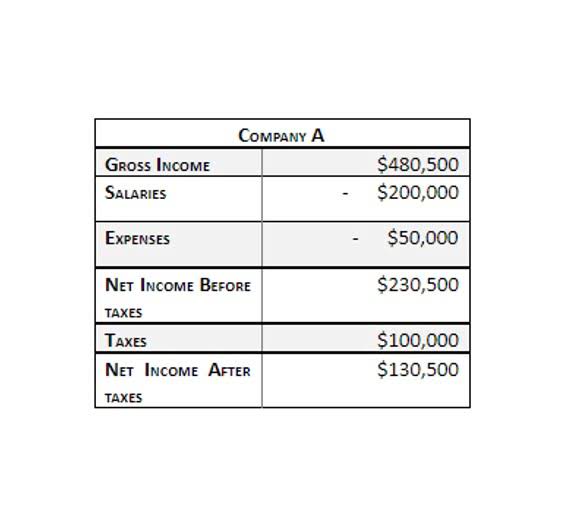What Are Generally Accepted Accounting Principles GAAP?

It is also possible, though time-consuming, to convert GAAP documents and processes to meet IFRS standards. Whether or not the two systems will ever truly integrate or converge remains to be seen, though efforts were made by the U.S. Securities and Exchange Commission from 2010 to 2012 to come up with an official plan for convergence. This means these companies’ financial statements must follow all the GAAP principles and meet GAAP standards. Any external party looking at a company’s financial records will be able to see that the company is GAAP compliant, making it both easier to attract investors and to successfully pass external audits. Hiring a professional accounting team trained in GAAP and having internal auditors track and check finances are two ways to ensure your company is meeting GAAP standards.

Time-period Principle

Accounting.com is committed to delivering content that is objective and actionable. To that end, we have built a network of industry professionals across higher education to review our content and ensure we are providing the https://www.bookstime.com/articles/church-chart-of-accounts most helpful information to our readers. Upgrading to a paid membership gives you access to our extensive collection of plug-and-play Templates designed to power your performance—as well as CFI’s full course catalog and accredited Certification Programs. GAAP also seeks to make non-profit and governmental entities more accountable by requiring them to clearly and honestly report their finances.
Would you prefer to work with a financial professional remotely or in-person?
Each principle is meant to guarantee and support clear, concise and comparable financial reporting. This principle states that any accountant or accounting team hired by a company is obligated to provide the most unbiased, accurate financial report possible. Although a business may be in a bad financial situation, one that may even compromise its future, the accountant may only report on the situation as it is.
Can you explain the Principle of Continuity and its impact on asset valuation?
Despite some progress under the Norwalk Agreement, the FASB and the IASB continue to battle friction resulting from fundamental disagreements at the governance level. As of June 2024, the United States has not fully adopted IFRS principles, and domestic U.S. companies remain bound to GAAP reporting guidelines. However, the FASB and the IASB remain active collaborative partners and continue to work toward the formation of uniform international accounting standards. Also known as “pro forma” reporting, non-GAAP reporting describes financial statements, reporting standards, and disclosures that were not prepared using GAAP guidelines. They may be used by U.S. businesses and organizations not subject to GAAP requirements, or by certain international entities operating in U.S. capital markets.

Top 6 Basic Accounting Principles
- The specific time period assumption requires that a business’s financial reports show results over a distinct period of time in order for them to be meaningful to those reviewing them.
- This book is widely recognized as an authoritative source for accounting practices.
- Despite some progress under the Norwalk Agreement, the FASB and the IASB continue to battle friction resulting from fundamental disagreements at the governance level.
- If companies were able to pick and choose what information to disclose, it would be extremely unhelpful for investors.
- The historical cost of assets and liabilities will still be updated over time to depict accounting transactions like depreciation or the fulfilment of part or all of a liability.
In other words, inflation is not considered in the financial reports of a business, even if that business has existed for decades. The accrual basis of accounting recognizes revenues and expenses in the period incurred, regardless of when cash is received or paid. This means that a company records transactions in the period they occur, rather than when payment is made or received. GAAP is the set of accounting guidelines used for every publicly traded company in the United States. It is comparable to the International Financial Reporting Standards (IFRS) that many non-U.S.
- Public companies must follow GAAP when preparing their financial statements, which is also widely used in governmental accounting.
- GAAP is meant to ensure consistency, accuracy, and transparency in financial reporting and aims to provide a reliable foundation for investors to make informed decisions.
- As a business language, accounting must be simple to understand for the people who own or manage the company’s affairs.
- Our team of reviewers are established professionals with decades of experience in areas of personal finance and hold many advanced degrees and certifications.
- Our easy online enrollment form is free, and no special documentation is required.
- GAAP allows for offsetting in certain specific circumstances, such as when assets and liabilities represent the same transaction or when a legally binding entitlement exists to offset the acknowledged sums.
As per the accrual principle, the sales should be recorded during the period, not when the money would be collected. GAAP is the set of standards and practices that are followed in the United States, but what about other countries? Outside the US, the alternative in most countries is the International Financial Reporting Standards (IFRS), which is regulated by the International Accounting Standards Board (IASB). While the two systems have different principles, rules, and guidelines, IFRS and GAAP have been working towards merging the two systems. For financial analysts performing valuation work and financial modeling, it’s important to have a solid understanding of accounting principles.
Accrual Principle

Always scrutinize financial statements, as there’s potential for manipulation within GAAP’s framework. Principles such as the cost principle can prevent businesses from reflecting https://www.instagram.com/bookstime_inc current market values, potentially leading to outdated financial information. Adhering to various Accounting Principles can make financial reporting complex and difficult to understand, particularly for small businesses with limited resources. Meanwhile, IFRS standards are principles-based, offering more latitude and subjectivity when interpreting guidelines. IFRS principles are issued and updated by the International Accounting Standards Board (IASB), an independent and private organization based in London.

This allows companies to accrue expenses in the belief that they will still be in operation when it is time to meet financial obligations. Different financial statements are created in relation to different accounting periods. The principle of conservatism is the second principle that allows an accountant to use their best judgment in particular situations. The basic principles of accounting are not just any identify the two main categories of accounting principles. arbitrary principles that differ from accountant to accountant. Instead, the field of accounting is governed by a series of principles or rules as defined by the Financial Accounting Standards Board (FASB). Everyone accepts this assumption and all accounting records and statements prepared on the basis of this assumption are generally accepted by all concerned.
Note on monetary unit assumption:
In that sense it contributes to the achievement of comparability which is one of the qualitative characteristics of useful financial information (see the related article ‘Qualitative accounting characteristics’). The conservatism principle says that company accounts should be prepared with caution and some moderation, especially in times of uncertainty. So, in such times, liabilities should be recognized immediately upon discovery and revenues only when verified. The going concern principle assumes a company will stay in business in the future as long as there is no evidence to the contrary.
